You must have heard about the recent tragic accident at Alton Towers. Unfortunately it involved one of the most popular rides, the Smiler. Accidents are bound to happen due to various reasons e.g. human error or faults in mechanical, electrical, electronics or control systems/components. Some of the accidents are catastrophic and involves the loss of human lives that includes today’s (Saturday August 22, 2015) vintage plane crash at the air show at Shoreham.
Among several reasons, corrosion is one of the major phenomena which plays an important role in structural deterioration and compromising reliability and durability of components, systems within petrochemical & process industries, automotive, locomotive and aircrafts.
Special attention to corrosion in terms of design, detection and prediction of failures is needed especially where human lives are involved. Here are some of the images from major international and home theme parks where there are visible signs of structural deterioration. Although corrosion initiation, its propagation and affects on structural deterioration may not be physically and visually very prominent, it needs full attention to avoid accidents. 




A significant portfolio of research & development in corrosion has been developed at BU, which responds to structural integrity issues. Earlier work [15-17] in corrosion fatigue has led to a successful research portfolio in corrosion at BU [1-17]. We have developed a meso-mechanics based approach incorporating fracture mechanics and electrochemical processes to predict corrosion through a novel holistic modelling tool.
A PhD degree research in sustainable methodology of conserving historic military vehicles subject to structural deterioration due to corrosion [13, 14] has been successfully completed. This research was conducted in collaboration with The Tank Museum at Bovington. Controlled environment within the newly designed VCC (Vehicles Conservation Centre) is informed by the outcomes of this research. In addition NASA [13] has also been collaborating in corrosion research at BU along with BAE Systems and Analatom Inc. Discussions with Analatom are currently in progress for further collaboration in corrosion sensors technology.
A second project in corrosion monitoring techniques in collaboration with Defence Science & Technology Laboratory Ministry of Defence, through a match funded PhD is currently in progress [1-5]. Recent publications [2-4] from this research have made to the Taylor & Francis top 20 most read articles list. This is an evidence of novel contributions to corrosion and corrosion modelling techniques.
A third project in collaboration with Defence Science & Technology Laboratory Ministry of Defence through BU match funded PhD programme has been awarded to look into wireless corrosion monitoring techniques.
In addition nano coatings (in collaboration with Schaeffler, a major industrial partner) have been developed at BU incorporating corrosion issues to solve current corrosion problems within industrial applications.
A collaborative research project with National University of Science & Technology & Future Energy Source Ltd (the overall portfolio includes 2 x fully funded PhDs, 2 x match funded PhDs and 1 x Post Doctoral Research Assistant, PDRA) is currently underway to investigate corrosion issues within thermal storage applied in renewable technologies.
We have state of the art corrosion bench testing (environmental simulation) and modelling tools. We have micro LPRs (Linear Polarisation Resistors) & MEMS (Micro Electrical Mechanical Systems) based live corrosion monitoring stations for large stationary and moving vehicles.
Please contact Zulfiqar Khan (Associate Professor) if you would like to know more about the research activities or have interests in corrosion related issues,
Publications in Corrosion
- Nazir, M. H., Khan, Z., & Stokes, K. (2015). A Holistic Mathematical Modelling and Simulation for Cathodic Delamination
Mechanism – A Novel and an Efficient Approach. Journal of Adhesion Science and Technology. doi:10.1080/01694243.2015.1071023
- Nazir, H., & Khan, Z. (2015). Maximising the interfacial toughness of thin coatings and substrate through optimisation of defined parapmeters. International Journal of Computational Methods & Experimental Measurements, 1-13. doi:10.2495/CMEM-V0-N0-1-13
- Nazir, M., Khan, Z., & Stokes, K. (2015). Optimisation of Interface Roughness and Coating Thickness to Maximise Coating-Substrate Adhesion – A Failure Prediction and Reliability Assessment Modelling. Journal of Adhesion Science and Technology, 29(14), 1415-1445. doi:10.1080/01694243.2015.1026870
- Nazir, H., Khan, Z., & Stokes, K. (2015). A Unified Mathematical Modelling and Simulation for Cathodic Blistering Mechanism
incorporating diffusion and fracture mechanics concepts. Journal of Adhesion Science and Technology, 29(12), 1200-1228. doi:10.1080/01694243.2015.1022496
- Nazir, H., Khan, Z., & Stokes, K. (2014). Modelling of Metal-Coating Delamination Incorporating Variable Environmental Parameters. Journal of Adhesion Science and Technology, 29(5), 392-423. doi:10.1080/01694243.2014.990200
- Nugent, M., & Khan, Z. (2014). The effects of corrosion rate and manufacturing in the prevention of stress corrosion cracking on structural members of steel bridges. The Journal of Corrosion Science and Engineering JCSE, 17(16). Retrieved from http://www.jcse.org/
- Wilton-Smith, K., Khan, Z., Saeed, A (2014). Accelerated Corrosion tests of Waste-gated Turbocharger’s Adjustable and Fixed End Links. In High Performance and Optimum Design of Structures and Materials Vol. 137 (pp. 501-508). Southampton: Wessex Institute of Technology, UK. doi:10.2495/HPSM140461
- Ramesh, C. S., Khan, S., Sridhar, K. S., & Khan, Z. (2014). Slurry erosive wear behavior of hot extruded Al6061-Si3N4 composite. Materials Science Forum, 773-774, 454-460. doi:10.4028/www.scientific.net/MSF.773-774.454
- Ramesh, C. S., Khan, S., Khan, Z., & Sridhar, K. S. (2013). Slurry Erosive Wear Behavior of Hot Extruded Al6061-Si3N4 Composite. Materials Science Forum, 773-774(2014), 462-468. doi:10.4028/www.scientific.net/MSF.773-774.462
- Chinnakurli, R., Adarsha, H., Pramod, S., & Khan, Z. (2013). Tribological Characteristics of Innovative Al6061-Carbon Fibre Rod Metal Matrix Composites. Materials and Design, Volume 50(September 2013), 597-605. doi:10.1016/j.matdes.2013.03.031
- Dobson, P., & Khan, Z. (2013). Design considerations for carbon steel pipes materials’ selection applied in fossil powered plants subjected to wet-steam flow accelerated- corrosion review paper. Journal of Corrosion Science and Engineering, 16, 1-13. Retrieved from http://www.scopus.com/source/sourceInfo.url?sourceId=12326&origin=recordpage
- Denham, L., & Khan, Z. (2013). The prevention of corrosion and corrosion
stress cracking on structural members of
fixed deep sea oil rigs. The Journal of Corrosion Science and Engineering, 16, 1-13. Retrieved from http://www.jcse.org/
- Saeed, A., Khan, Z., & Montgomery, E. L. (2013). Corrosion Damage Analysis and Material Characterization of Sherman and Centaur – The Historic Military Tanks. Materials Performance and Characterization, 2(1), 1-16. doi:10.1520/MPC20120016
- Saeed, A., Khan, Z. A., Nel, M., & Smith, R. (2011). Non destructive material characterisation and material loss evaluation in large historic military vehicles. Insight – Non-Destructive Testing and Condition Monitoring, 53, 382-386. doi:10.1784/insi.2011.53.7.382
- Khan, Z. A., & Zhen, P. J. (2001). Corrosion Fatigue & Remaining Life Assessment Techniques of 16MnR Pressure Vessel Steel (96-918-02-04). Shanghai: Ministry of Labour, Government of the Peoples’ Republic of China.
- Khan, Z. A., & Zhen, P. J. (2000). Corrosion fatigue of 16Mn pressure vessel steel in H2S environment. American Society of Mechanical Engineers, Pressure Vessels and Piping Division (Publication) PVP, 413, 49-54.
- Zhen, P. J., & Khan, Z. A. (2000). Pressure Vessel Materials: Handbook (1 ed.). Beijing, PR China: Industrial Equipment and Information Engineering Centre.
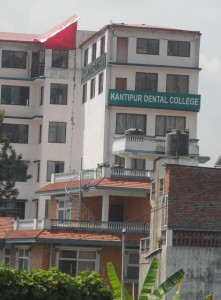
 2016 (15-16 Feb.).
2016 (15-16 Feb.).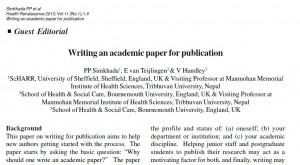





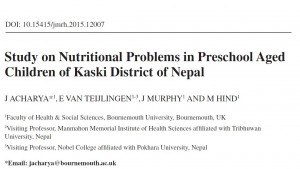
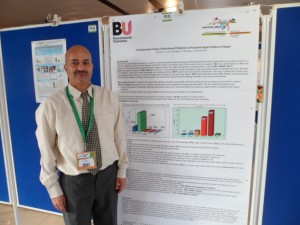

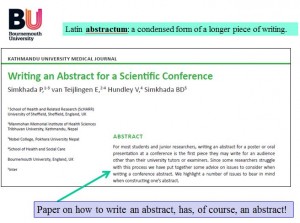
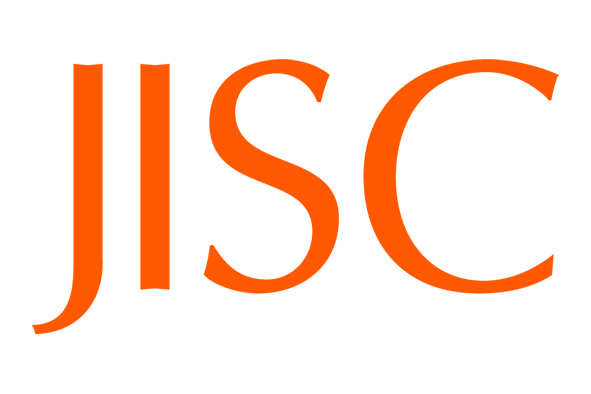

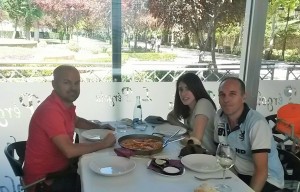

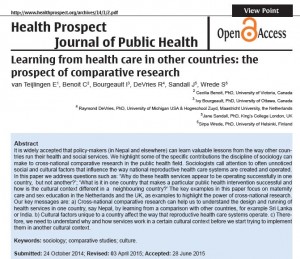


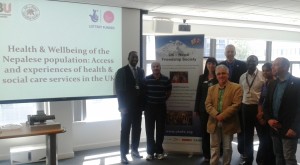
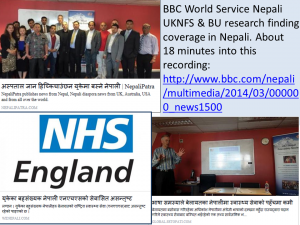 uth Asian and broader Black & Minority Ethnic (BME) communities in the UK.
uth Asian and broader Black & Minority Ethnic (BME) communities in the UK.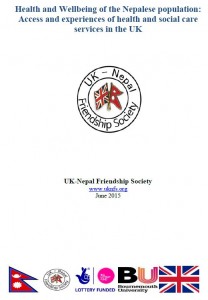

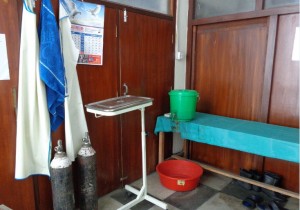
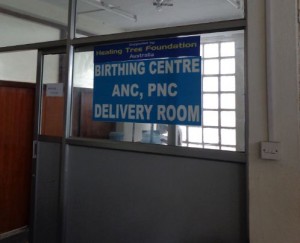
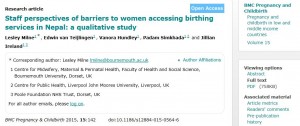
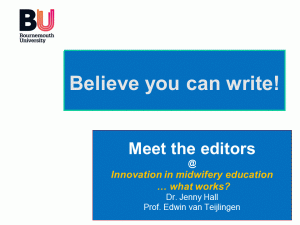
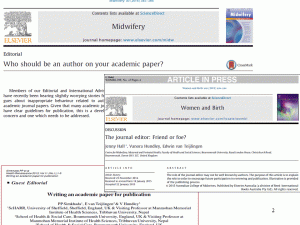











 New CMWH paper on maternity care
New CMWH paper on maternity care From Sustainable Research to Sustainable Research Lives: Reflections from the SPROUT Network Event
From Sustainable Research to Sustainable Research Lives: Reflections from the SPROUT Network Event ECR Funding Open Call: Research Culture & Community Grant – Apply now
ECR Funding Open Call: Research Culture & Community Grant – Apply now ECR Funding Open Call: Research Culture & Community Grant – Application Deadline Friday 12 December
ECR Funding Open Call: Research Culture & Community Grant – Application Deadline Friday 12 December MSCA Postdoctoral Fellowships 2025 Call
MSCA Postdoctoral Fellowships 2025 Call ERC Advanced Grant 2025 Webinar
ERC Advanced Grant 2025 Webinar Update on UKRO services
Update on UKRO services European research project exploring use of ‘virtual twins’ to better manage metabolic associated fatty liver disease
European research project exploring use of ‘virtual twins’ to better manage metabolic associated fatty liver disease